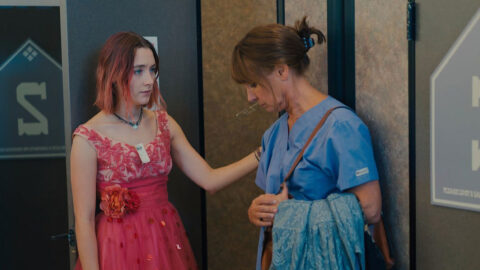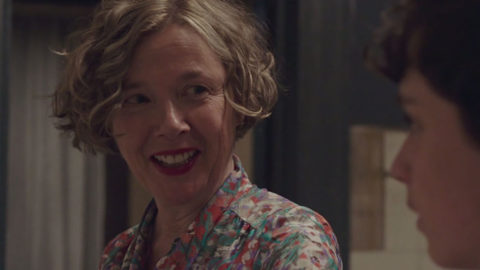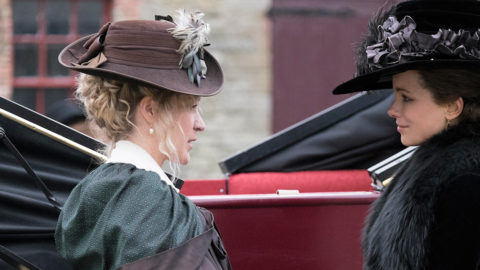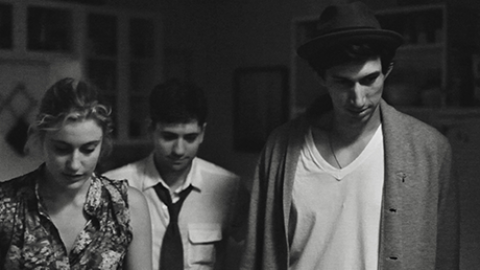By Sheila O'Malley in the November-December 2017 Issue
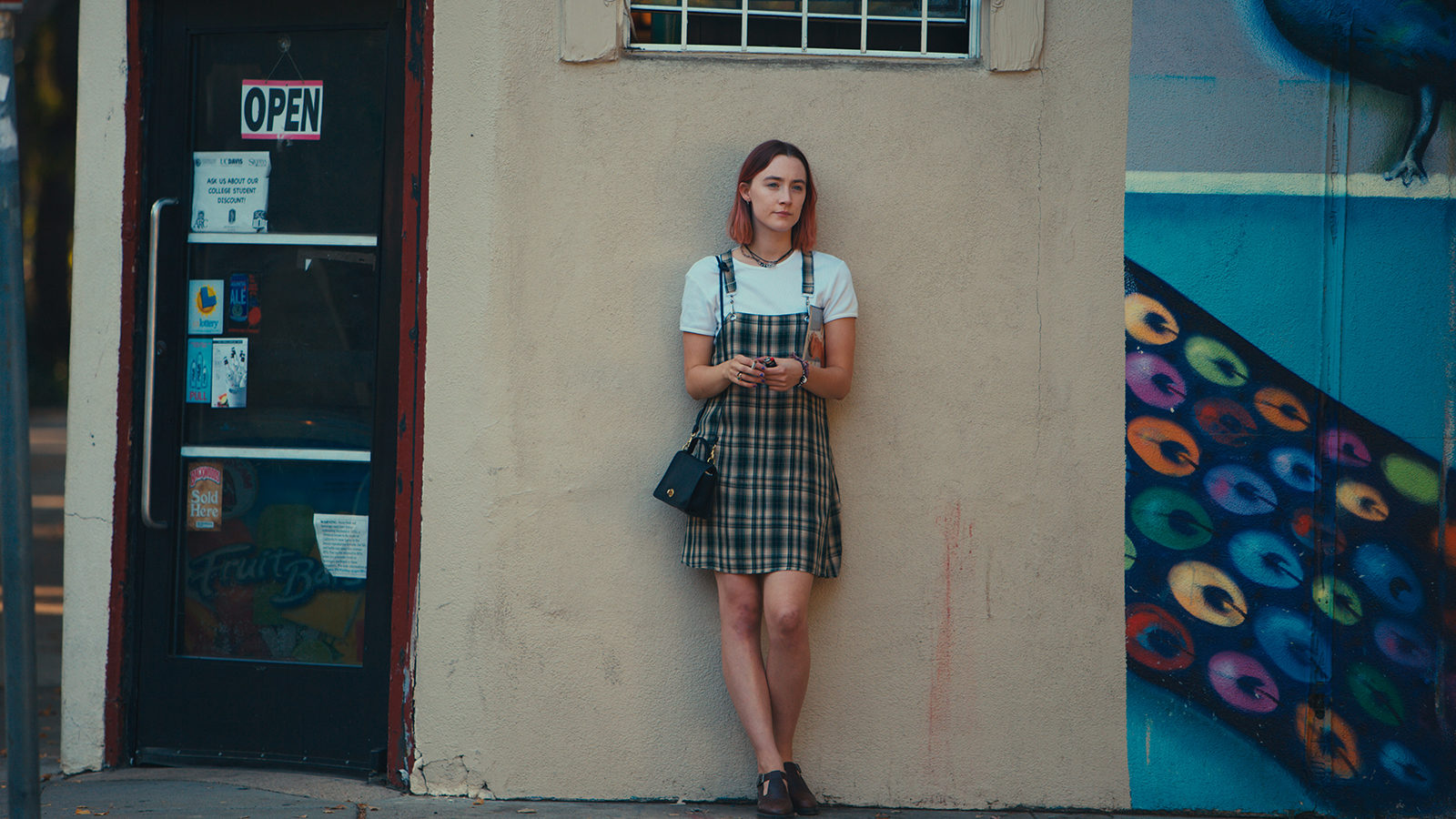
Review: Lady Bird
(Greta Gerwig, USA, A24, Opening November 3)
Greta Gerwig’s Lady Bird takes place in her hometown of Sacramento, “the Midwest of California,” in the words of the film’s title character. It’s a conservative, homogenous place where photos of once-Governor Ronald Reagan still hang proudly in people’s homes, and where it’s assumed by parents that attending a local college is preferable to traveling 3,000 miles away for school. Joan Didion, born and raised in Sacramento, wrote, “My mother made the trip from Sacramento to Los Angeles in 1932, to see the Olympics, and did not find reason to make it again for 30 years.”
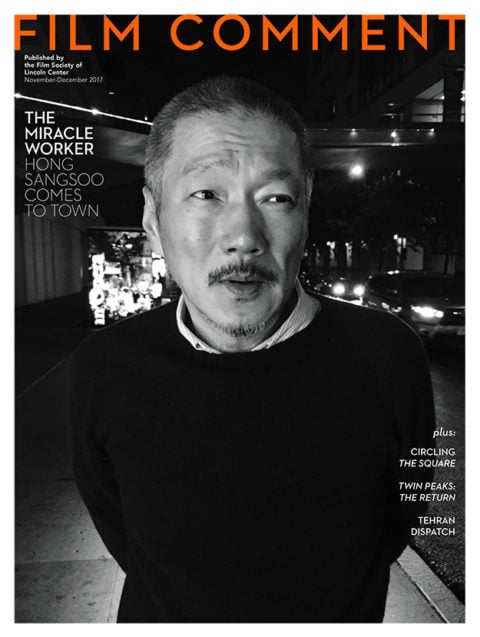
From the November-December 2017 Issue
Also in this issue
Gerwig co-directed and co-wrote a number of features in her “mumblecore” beginnings before her fruitful collaboration with Noah Baumbach (Frances Ha, Mistress America). Her first solo flight as a director and writer is beautifully confident in its rhythm and mood, the script whip-sawing from humor to earnest emotion to raw pain and back.
Christine (Saoirse Ronan) is a nervy, restless high school senior, lost in the shuffle of a big Catholic school. She has re-named herself “Lady Bird” as a declaration of independence. It’s not clear if she realizes the nickname also happens to be one of the most famous nicknames of all time. Maybe she chose it because it suggests flight: from provincial Sacramento, or from limitations and labels. Lady Bird is not a particularly strong student, nor is she a burgeoning artist—but she wants to be around people doing creative things, and to her, that means anywhere other than Sacramento. “When did you become such a snob?” asks her harassed mother (Laurie Metcalf, terrific in her meatiest movie role in years).
Lady Bird’s father (Tracy Letts) lost his tech job and her mother works double-shifts at the hospital to make up the difference. Brother Miguel (Jordan Rodrigues) and his deadpan girlfriend Shelly (Marielle Scott) live at home. Financial tensions run high, which is why Lady Bird’s mother is so adamant that her daughter choose a closer (and cheaper) college.
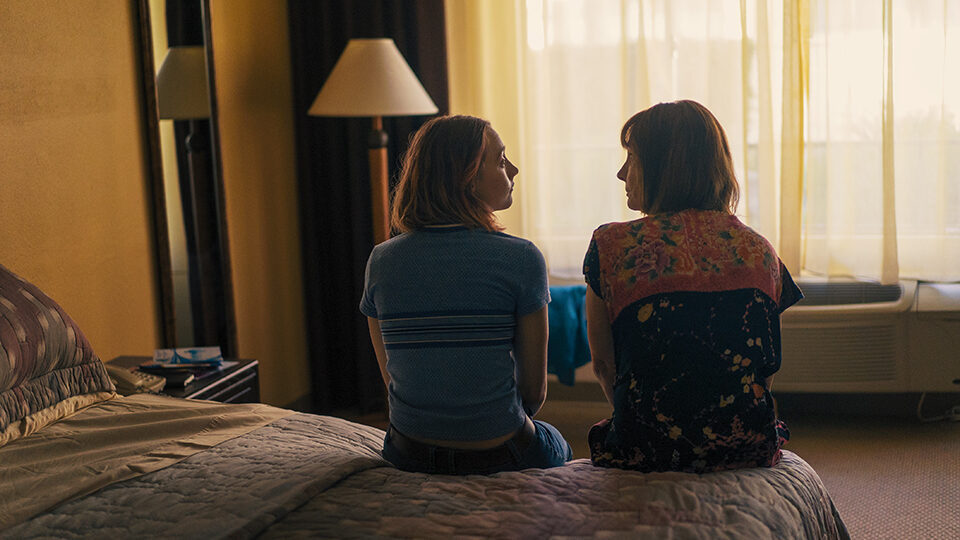
Gerwig doesn’t so much lampoon Catholic education as gently present its absurdities. There’s the pro-life lecture given to the girls in the gym, disrupted by Lady Bird’s pointed questions. There’s Lady Bird and her best friend Julie (Beanie Feldstein) protesting that it’s okay to snack on the big jar of communion wafers because “they’re not consecrated yet!” Lady Bird’s involvement in the school’s production of a Sondheim revue leads to a romance with another cast member (Lucas Hedges). But she’s also drawn to Kyle (Timothée Chalamet), a morose poseur reading Howard Zinn’s A People’s History of the United States while ostentatiously smoking hand-rolled cigarettes. Her friendship with Julie takes a hit when the aspirational Lady Bird starts hanging out with the pouty-lipped Queen Bee of the school (Odeya Rush).
Unlike many other coming-of-age tales, Greta Gerwig’s focus is not just on sexuality and romance. The central relationship in the film is the volatile one between Lady Bird and her mother. In the opening scene, the two of them listen to The Grapes of Wrath on tape in the car, weeping openly. Then an argument erupts, ended by Lady Bird throwing herself out of the moving car in order to get the last word. Metcalf and Ronan create a completely believable mother-daughter dynamic, where bickering over clothes-shopping morphs into monstrously personal arguments at the drop of a hat.
At 23 years old, Saoirse Ronan as Lady Bird captures the knock-kneed pimply awkwardness of adolescence, the awful season right before blossoming. There are brief moments when she flares out into a startling beauty, a beauty of which Lady Bird is wholly unaware, and not at all in charge of. As she struts across the stage during her audition for the play, belting out a Sondheim song as though she’s Angela Lansbury, wearing flaming red lipstick, there’s a sudden glimpse of the woman she might become. But in the meantime, it’s all flailing arms, haphazard expressiveness, reaching for a persona that might fit.
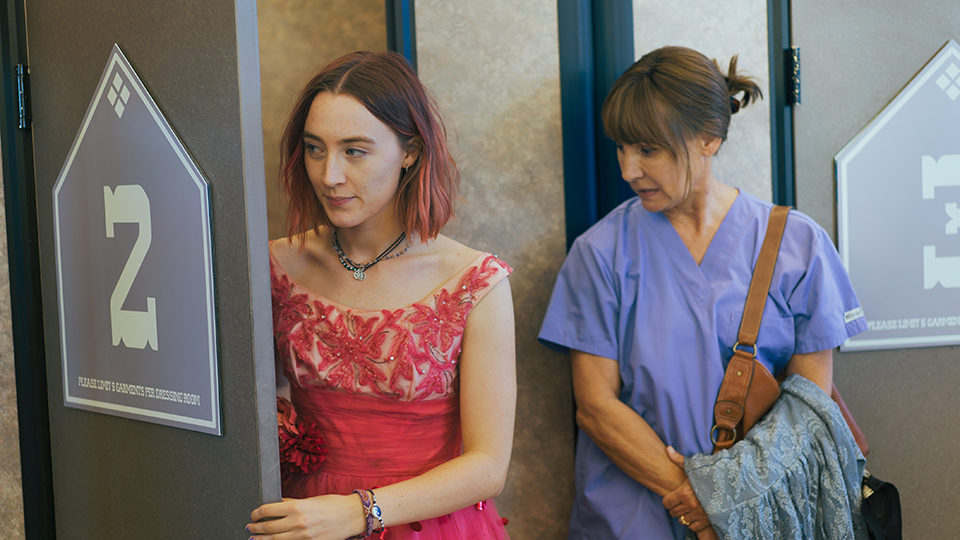
As made clear by the film’s sharply poignant final sequence, Gerwig understands that one of the most important parts of growing up is learning to think about people other than yourself. After reading Lady Bird’s college application essay, the principal (Lois Smith) observes that her love of Sacramento came across loud and clear. Lady Bird responds that she wasn’t trying to express love: all she did was “pay attention.” This is Gerwig’s gift as a writer and as a director. She knows that love and paying attention are essentially the same thing.
Sheila O’Malley is a regular film critic for Rogerebert.com and other outlets including The Criterion Collection. Her blog is The Sheila Variations.



